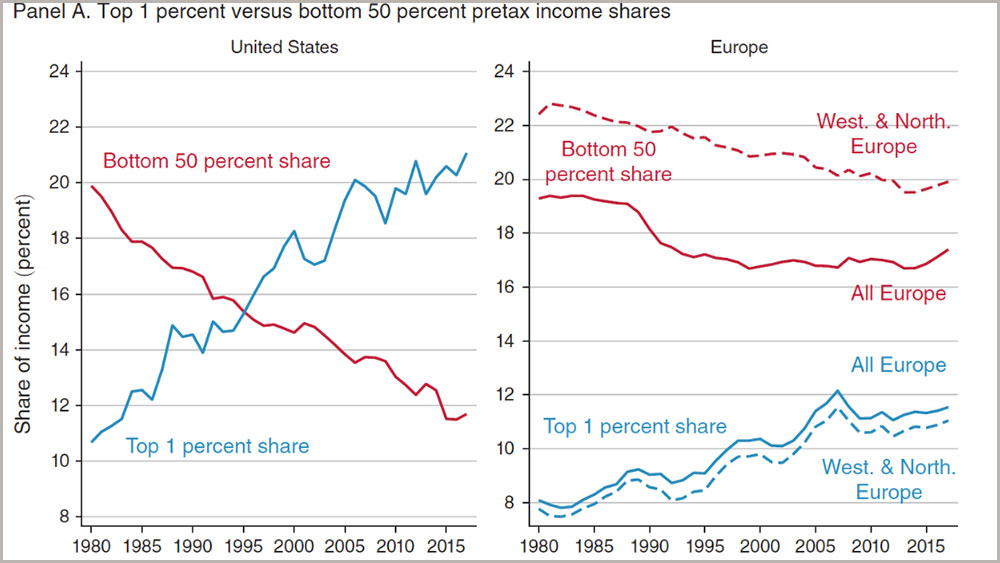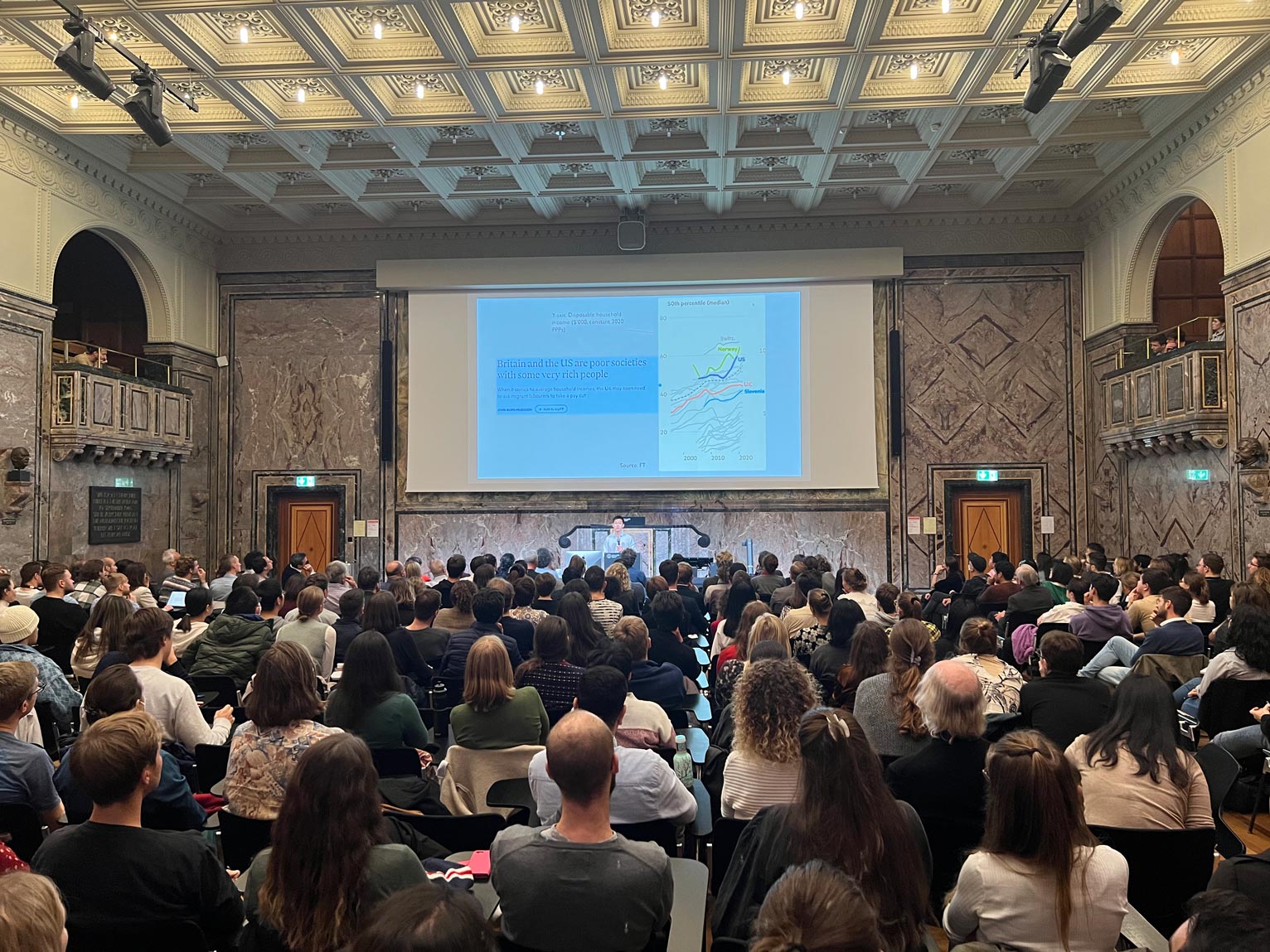Research slam
Reducing poverty and inequality is one of the five global challenges that the researchers at the Department of Economics want to help solve. They presented their own research and work that inspired them in short talks at the fourth Research Slam.
This report by Victoria Watts was originally published in German by UZH News, 1 November 2022. Translated and edited for layout purposes by the Department of Economics and the UBS Center.
The event in the auditorium of the University of Zurich met with great interest. An audience of around 300 listened with curiosity to the ideas of the economists. A total of eight doctoral students, post-docs and professors gave five-minute talks. We provide a brief overview below.
Pandemic deepened inequality in India
Rohini Pande (Yale) was Visiting Professor and did not want to miss the chance to participate in the slam. She reminded the audience that the groups that have only recently risen out of poverty are also the most vulnerable to being thrown back into deprivation by economic shocks. Her research examined the situation of day laborers in India during the pandemic. After millions of people lost their jobs in the lockdown, women in particular did not return to the labor market — or only in unskilled positions — when the economy recovered. Many justified their staying away by citing social norms and family expectations. But, according to Rohini Pande, there is a solution: "You need programs that teach women financial skills and give them access to their own bank accounts. This changes perceived social norms, which in turn increases the take-up of government support programs."
Income inequality between Europe and the US
Garyn Tan, UBS Center Scholarship holder and PhD student at the Department of Economics, cited the graph below by Blanchet et al. (2022) on the evolution of income inequality between Europe and the US. The blue line shows that in 2015, the top 1% of the US population received 1/5 of the income. This share has almost doubled since 1980. At the same time, the poorer half of the population together had to share just under 11% of the total income, as the red line shows. In comparison, only 12% of income went to the richest 1% of the population in Europe in 2015. The poorest 50% shared between 18 and 20% of total income. "The striking differences to the situation in Europe cannot be explained by post-tax redistribution measures - for example, social insurance or direct subsidies," says Garyn Tan, "but by government measures that reduce the creation of inequality - such as access to education or healthcare, and labor market regulatory measures like minimum wages."
Casino analogy on the emergence of inequality
Professor Jakub Steiner took a step back into theory with his lecture "A nerdy remark on Inequality", presenting reflections on the emergence of inequality using the law of large numbers. "Suppose life is a casino. Everyone gets the same starting money and plays the same lottery every day with the same probabilities." Now, according to Jakub Steiner, if everyone bets 1 franc (additively) on a game every day, the additive effect leads to little inequality between players over time. If, on the other hand, players bet their total winnings every day, "we have a multiplicative effect that leads to enormous inequality over time, in which a few lucky people experience huge income growth."
Other presentations looked at measures that help reduce air quality disparities between disadvantaged and advantaged populations (Elie Gerschel), how an increase in minimum wages affects innovation in automation (David Hémous), how women are consistently rewarded less compared to men for the same initial potential: In education, on the labor market and especially in politics (Guilherme Lichand), how the shares of the factors of production (human labor, natural resources, capital, etc.) develop differently in different societies (Andrés Dávila-Ospina).
Reducing poverty and inequality is one of the five global challenges that the researchers at the Department of Economics want to help solve. They presented their own research and work that inspired them in short talks at the fourth Research Slam.
This report by Victoria Watts was originally published in German by UZH News, 1 November 2022. Translated and edited for layout purposes by the Department of Economics and the UBS Center.
The event in the auditorium of the University of Zurich met with great interest. An audience of around 300 listened with curiosity to the ideas of the economists. A total of eight doctoral students, post-docs and professors gave five-minute talks. We provide a brief overview below.



Further reading
Blanchet, Thomas, Lucas Chancel, and Amory Gethin. 2022. Why Is Europe More Equal than the United States? American Economic Journal: Applied Economics, 14 (4): 480-518.
Janet Currie, John Voorheis, and Reed Walker. 2020. What Caused Racial Disparities in Particulate Exposure to Fall? New Evidence from the Clean Air Act and Satellite-Based Measures of Air Quality NBER Working Paper No. 26659
Dechezleprêtre, Antoine and Hemous, David and Olsen, Morten and Zanella, Carlo. 2021. Induced Automation: Evidence from Firm-level Patent Data University of Zurich, Department of Economics, Working Paper No. 384